Paul Morphy - Pride and Sorrow of Chess

Paul Morphy
In contrast to Henry Bird, Morphy was a great advocate of the open game and excelled in this. His style was less flashy than other leading players of his time. He concentrated on quick and early development.
He was blessed with an innate ability to instantly size up the nature, problems and possibilities of a position at a mere glance. Over the board he simply had no equal. He demonstrated this in England and France by hammering the masters of London and Paris.
He was gifted with extraordinary intellect and aptitude which he applied to chess with such incredible effect. But equally he was a troubled soul and this prevented him from realizing his full potential both as a player and as a man. Share a story on Morphy.
Young Paul

Young Paul
Morphy grew up in a refined existence. The family would typically while away the evening with pursuits such as music or a good game of chess. Young Paul picked up the rules simply by watching older family members play.
He stunned everyone one day after his father and uncle played out a long draw. "You should have won Uncle Ernest", he said. They hadn't realized he even knew the rules. Then he reset the pieces and showed them the victory Ernest had spurned. He quickly became regarded as the best player in New Orleans.
First American Chess Congress
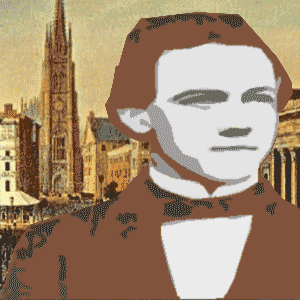
Paul played in the First American Chess Congress in 1857 in New York
You had to be 21 to practice law. So even though Morphy was qualified by the summer of 1857 he had more than a year to wait. He needed a pursuit to fill his time. He took up an invitation to the First American Chess Congress to decide the US champion. He humbled all opposition including up and coming master Louis Paulsen in the final to take the championship.
Morphy Challenges Staunton
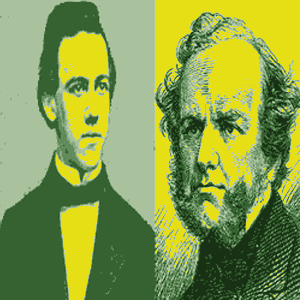
Staunton would not play Morphy
With his free year, Paul Morphy had a burning ambition. He no longer played any American without giving odds. He wanted to travel to Europe, test himself against the best and beat the best.
He arrived by steamboat in Liverpool in the summer of 1858 and from there traveled to Birmingham to play against top English masters. He didn't play in the Birmingham tournament but later beat all serious players in England. All except Howard Staunton who refused to play Morphy after seeing him in action.
Café de la Régence
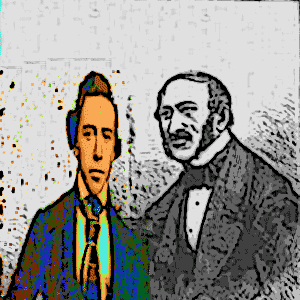
Morphy vs Lowenthal
In the 18th and early 19th centuries France had been the premier chess nation having wrested the mantle from Italy and Spain. With players like Legall, Philidor, Deschappelles and La Bourdonnais to mention the very strongest, France for many years had been peerless.
And now even though the French star had faded slightly it was still a world power. The famous Parisian chess club, the Café de la Régence was still attracting many of Europe's most celebrated players. Morphy headed straight for this club. It was at an opera in Paris that Morphy played one of the most famous chess games ever. This game became known simply as A Night at the Opera.
World Champion
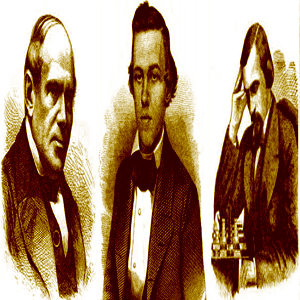
Changing of the Guard - Morphy dethrones Anderssen having already dispatched Harrwitz
Morphy sent the stakes from this match to another native of Breslau, Adolf Anderssen. Due to his win in London in 1851 in and his domination of European chess since, Anderssen was generally regarded as the best player in the world. Morphy despite being quite ill met Anderssen over the board in Paris and won decisively. He was hailed in Paris, London, at home in America and across the chess world as the unofficial World Champion.
Morphy Quits
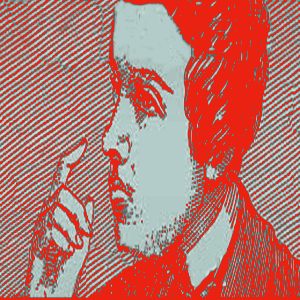
Paul Morphy Gave Up Competitive Chess
There were banquets in France and England and later America when he returned home. Everyone wanted to raise a toast to the "World Chess Champion" and see him play for them. Paul played less and less chess as time went on and only when giving odds.
He began to go to great lengths to avoid playing at all. This displeased many but eventually people came to be resigned to the loss of Paul Morphy from the chess scene. By 1860 Paul Morphy had permanently exited competitive chess.
Death of Morphy

Paul Charles Morphy (June 22, 1837 - July 10, 1884)
On July 10 1884, Paul went for a walk as he liked to do on a daily basis. It was a particularly hot day and when he returned he took a cold bath. This was believed to have brought on a seizure which proved fatal.
Morphy had always been delicate and was prone to ill health. He was 47 when he died. He was buried the next day.
Legacy of Morphy
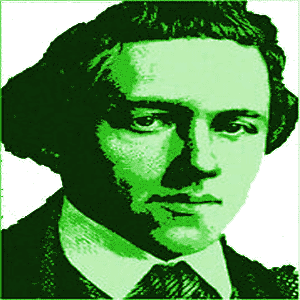
Paul Morphy's influence on chess is still felt today
They were not versed in positional realities and furthermore barely considered the concept. Morphy saw what they couldn't see. His play seemed a little conservative when compared to some of them.
He consistently followed a formula of quick development, King safety and then attack. His positional solidity would protect him against their imperfect attacks and then before they knew it, his pieces would be swarming their citadel.
Many of his opponents would no doubt be scratching their heads wondering where it all went wrong. He and a few other great masters paved the way for positional chess to sweep aside the all out attacks of the Romantic Era.
Share Your Paul Morphy Anecdotes and Games
The problem with biographies is you must concentrate on breadth and can never go as deep as you would like. You can mention the major events in someone's life but can't allow yourself to indulge in intricate detail. And Paul Morphy is someone who lived a very interesting life. There must be countless anecdotes and interesting accounts of different episodes and incidents throughout his time. Many of these stories would have originated from among the great many people that he would have met in different parts of the world. Some of these accounts give us an insight into what kind of man he was, what made him tick. Or if you prefer you could annotate one of his games, reflecting his genius over the board. Do you know of an interesting story or game from the life of Paul Morphy? Share Your Paul Morphy Anecdotes or Games With Us.
Paul Morphy Anecdotes and Games Left by other Contributors
Click below to see Paul Morphy Anecdotes and Games from other Contributors...
Morphy Child Prodigy 



When Paul was 8 years old, a distinguished gentleman, General Winfield Scott visited New Orleans. He requested that his hosts find a strong local chess …
Morphy Meets Prince Not rated yet
Paul Charles Morphy possessed great intuitive capabilities to think ahead of his time and during the peak time he dominated his contemporaries much better …
Moving On

Joseph Henry Blackburne
He may have dominated chess for another 30 years if he had wanted to but that's just it, he didn't want to. The Pride and Sorrow of Chess sums him up perfectly for his personal tragedy goes far beyond chess. His loss was that the things he really wanted from life eluded him.
He could attain whatever he wanted on a chessboard but where it really mattered to him, off the board, he couldn't succeed in his goals. Here is a great piece on Morphy by AJ Brown from New York.
Morphy's time in England was a boost for the game there resulting in the emergence of many great masters. One of these was Joseph Henry Blackburne.






